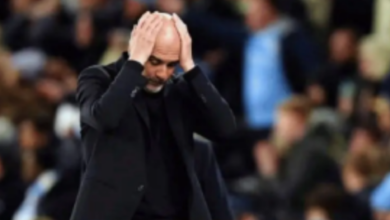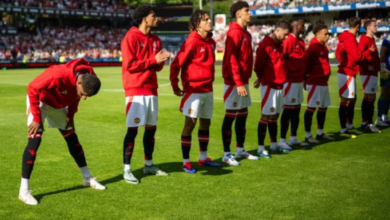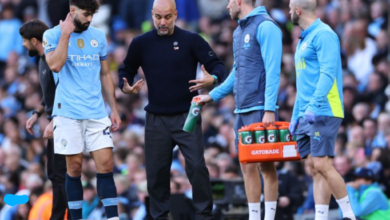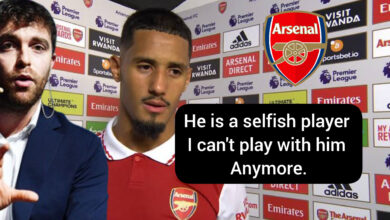SHOCKING! Maresca’s Bold Gamble vs Brighton EXPOSES Chelsea’s Biggest Problem! Even Cole Palmer Can’t Save Them!
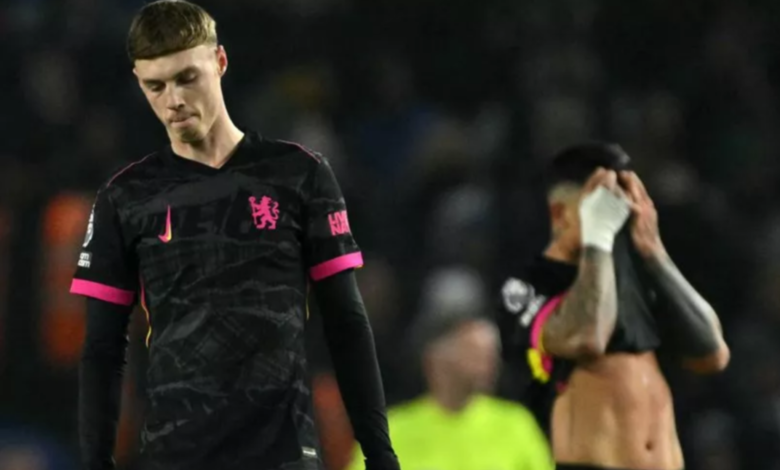
Maresca’s Tactical Experiment vs Brighton Fails to Solve Chelsea’s Persistent Issue
There’s an old adage that players often seem better when they are not on the pitch. For Nicolas Jackson, this sentiment has never been more accurate.
Chelsea manager Enzo Maresca has been a vocal supporter of Jackson, and last week made it abundantly clear why. Despite enduring the toughest goal drought of his Premier League career, Jackson still provides qualities that no other Chelsea forward can replicate.
His relentless movement and pressing constantly challenge opposing defenses. Unlike his teammates, who prefer receiving the ball at their feet and taking on defenders directly, Jackson disrupts defensive lines, creates space for others, and—when on form—contributes both goals and assists. Even during his recent struggles, he has recorded two assists in his last four league matches, demonstrating his unique influence.
This was glaringly obvious when Maresca attempted to replace him by utilizing Christopher Nkunku and Cole Palmer in Chelsea’s recent fixture against Brighton. Their lack of a true No.9 presence made the Blues’ attacking play even more disjointed, and Friday’s match only highlighted the same shortcomings. With the news that Jackson will be sidelined until after the March international break, Maresca now faces another major hurdle at a time when he least needs it.
Already under pressure from an impatient fanbase and dealing with a squad struggling for form and confidence, Maresca is now deprived of a player who was central to his tactical system. The warning signs were there long before Jackson’s injury, yet Chelsea failed to prepare adequately.
Jackson arrived in England with limited experience, having accumulated just over 2,500 senior league minutes in Spain—only 1,800 of those in La Liga. Despite his inexperience, Chelsea thrust him into the demanding environment of the Premier League, where he played more minutes last season than ever before. This heavy workload has taken its toll, both physically and mentally.
Over the past 18 months, Jackson has shown remarkable resilience, often carrying the attacking burden alone. With Christopher Nkunku and Armando Broja failing to offer reliable support under Mauricio Pochettino, and Marc Guiu primarily featuring in Conference League matches, Chelsea have placed excessive responsibility on Jackson’s shoulders. The club’s decision not to sign a proven striker last summer—opting against pursuing Victor Osimhen due to wage demands—and their reluctance to recruit reinforcements in January have left them exposed.
The timing of Jackson and Guiu’s injuries is unfortunate, but Chelsea’s lack of foresight is to blame. Even with Guiu available, they would still be relying on a 19-year-old with energy and work rate but no proven record at this level.
Critics of Jackson may now reconsider their stance after witnessing how toothless Chelsea are without him. Against Brighton, they lacked physicality, energy, and a focal point in attack. Jackson provides these qualities even on his off days, which made Maresca’s decision to deploy Palmer as a makeshift striker all the more telling.
Nkunku played in a slightly deeper role, closer to the attacking midfield position where he has excelled throughout his career. However, this tactical adjustment failed to produce the desired results. Palmer found himself in promising positions twice in the first 20 minutes but was unable to convert either opportunity.
Brighton’s early goal exposed Chelsea’s defensive frailties, with Kaoru Mitoma capitalizing on a long ball from goalkeeper Bart Verbruggen. Chelsea, already struggling for creativity, found themselves undone at both ends of the pitch. Their issues worsened after Yankuba Minteh’s second goal, as missed chances and defensive lapses compounded their woes.
At halftime, Maresca reverted to playing Nkunku as the central striker, hoping to create openings for his playmakers. However, Nkunku failed to pose a consistent threat, and frustration was evident when Palmer, unmarked during a counterattack, was ignored in favor of a safer pass. Palmer’s visible exasperation underscored the lack of cohesion in Chelsea’s attack.
Maresca has been indecisive about Nkunku’s role, initially suggesting he could partner Jackson up front but rarely deploying him in that capacity. Instead, Nkunku has primarily been used as a substitute for Jackson, rather than playing alongside or just behind him.
Against Brighton, neither Nkunku nor Palmer functioned effectively as a false nine, often leaving Chelsea’s attack toothless. Brighton’s defense remained largely untroubled, and Chelsea’s tactical response was underwhelming. Instead of adapting with a fluid attacking setup, the Blues played into Brighton’s hands with slow, predictable possession and wasteful finishing.
Maresca’s tactical approach has faced scrutiny in recent weeks, with critics pointing out his failure to make in-game adjustments. His strategy against West Ham showed promise, but the lackluster performance against Brighton reignited doubts. Ahead of the match, he hinted at using wingers centrally as a potential solution. “It could be an option,” he acknowledged. “Noni [Madueke], Pedro [Neto], or even Tyrique [George]—they can offer us a different approach.”
However, this supposed solution never materialized. Instead of a dynamic attacking display, Chelsea produced more of the same: passive buildup, wasteful finishing, and disjointed play. Even if Jackson had been available, the team’s attacking struggles suggest his presence alone wouldn’t have been enough. But one thing is clear—without him, Chelsea’s issues are even more pronounced.
